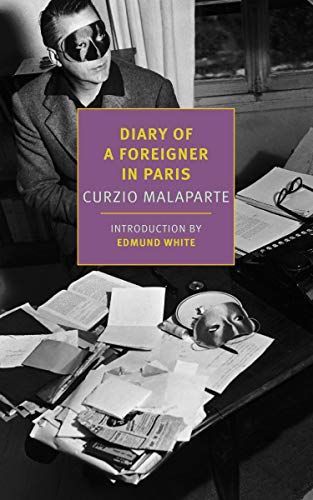
Diary of a Foreigner in Paris
"Every "diary" is a portrait, chronicle, tale, record, history. Notes taken day by day are not a diary but merely moments selected at random in the current of time, in the river of the passing day. A "diary" is a tale: the tale of a tranche de vie (the very definition of the novel, according to one celebrated school), of a period, a year, many years of our life. And as life follows the logic of a tale, it has a beginning, middle, and end (a life is a series of beginnings, middles, and ends, within the closed circle of the beginning, middle, and end of life, in the circle of life). It's not true that a "diary" begins by chance, progresses by chance, has no conclusion but the end of life. A diary, like every tale, calls for a beginning, a plot, and a denouement. The subject of Diary of a Foreigner in Paris is my return to Paris after a fourteen-year absence. It's my discovery of a new France, of a new French people. It's the portrait of a moment in the history of the French nation, of French civilization, that coincides with a particular moment in my life, in the story of my life. I don't claim to be breaking new ground in the "diary" genre. I'm simply suggesting that a diary is a tale, as a play is a tale. And now I arrive at my point: a "diary" is a theatrical work brought to the boards of the page. It's the point at which a tale comes closest to the theater. Everything there tends toward an ending, a conclusion, following the classical rules of unity, but centered on the character called "I." It's the Das Da, Kafka's "present moment," brought to the stage-page. My "diary," at least, is this."--
Reviews
Alexander Lobov@alexlobov